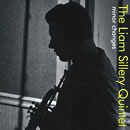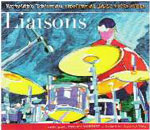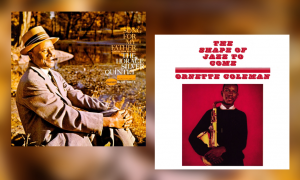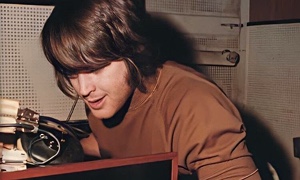Home » Jazz Articles » Building a Jazz Library » Post-Bop Records of the Modern Era
Post-Bop Records of the Modern Era
From 1980 to the present day a number of Jazz musicians have refracted the influences of Miles Davis and John Coltrane bands in straight-ahead jazz through an eclectic post-bop lens. This has been the most direct result of the '80s renaissance: recombination of these musicians innovations. Clear extension from these references is not always obvious but it is certain some musicians have gone about a process of retooling and refining the post-bop vocabulary set out in its essential form by Miles Davis, John Coltrane, along with other pioneers like Wayne Shorter, Woody Shaw and Bill Evans.
Post-bop can refer to a variety of Jazz music that is post-bebop chronologically but in the common understanding post-bop music reflects these influences: the more open approach to the jazz ensemble crystallized by the second Miles Davis quintet, and the modal intensity of that group as well as of the classic John Coltrane Quartet. Like those groups modern post-bop centers on modal material but over time it has broadened its scope to include reharmonized standards and pieces cycling through a variety of feels, e.g. from modal to Latin, Latin to modal or music that is quasi- "free", but more akin to modal jazz. Major figures on the scene today who have been critical to developing post-bop in the modern era include: Geri Allen, Kenny Garrett, Tom Harrell, Joe Lovano, Mulgrew Miller, and Wallace Roney.
 | Joe Henderson: State of the Tenor An important record in the '80s jazz renaissance, it features the stellar tenor of Joe Henderson matched to Ron Carter on bass and Al Foster on drums in the unveiling of a more refined post-bop vocabulary. |
 | Bobby Watson: Love Remains Watson and John Hicks, the pianist aboard here, are two modern-day giants who call and respond throughout in the creation of a masterpiece of what Watson calls "post- Motown bop"; the deep but subtle '60s R&B influence on his generation. |
 | Woody Shaw: Bemsha Swing Here we get to see one of the great beacons of post-bop in a live setting with future stars Geri Allen and Robert Hurst manning the keys and bass, respectively. Sharp. |
 | James Williams: Progress Report Williams sextet cut some amazing records in the '80s- here, playing a majority of originals in a very "up", hard-driving format. |  | Wynton Marsalis: Black Codes At the tail end of Wynton's Miles-influenced period, this record shows Wynton with at most fertile imagination, merging nuanced post-bop harmonies with shifting time signatures and stop-time passages. |
 | Mulgrew Miller: Hand in Hand an opus on the state of elegant, subtly hued swinging post-bop, it features a cast of players so tuned into the aesthetic here (K.Garrett, Steve Nelson, Joe H.) that the overall ensemble sound is simply seamless. |
 | Joe Lovano: From The Soul As fine a tenor quartet date as any of the modern era. Partner Michel Petrucciani is aboard for a reflective and swinging post-bop set that reveals Lovano, an important figure, at his best. |
 | Kenny Garrett: Triology "The Real Kenny G", Garrett's sound is unmistakable and his post-Coltrane sensibility is on display here in a saxophone trio record that is chock full of his stellar solos. |
 | Marc Cary: Cary On Mostly overlooked, this is a hidden gem of recent years, a modern day equivalent of a great "underrated" Blue Note record that has fine original, piano-driven post-bop music. Roy Hargrove guests here and is brilliant. |
 | Terence Blanchard: Romantic Defiance Blanchard has cut several vital records but this one with Kenny Garrett aboard (on Tenor) is his most definitive small group record: a very cohesive sound with stop-time and some Marsalis influence but the noirish voice of Blanchard coming out clearly. |
 | Wallace Roney: Quintet An essential record seen as an extension of the second major Miles Davis Quintet sound or not; more of a "thrashing" sound than the Davis band, and it reflects the direct influence on Wallace Roney of a mentor-Tony Williams (Miles' drummer in 2nd Quintet.) |
 | Ravi Coltrane: Moving Pictures The debut of Ravi Coltrane, son of you-know-who, offers a perfect view onto the mood of today's scene. It is eclectic but intentful, not brash but always simmering...Ravi acquits himself very well here, and comparisons to his father, while inevitable, seem unnecessary in light of this music that clearly stands on its own terms. |
 | Marc Copland: Softly Marc Copland, gives us here a treatise on the art of subtlety in the post-bop language. This record has the effect of showing why it made perfect sense Bill Evans would have played in Miles band; both men's contributions to the jazz language are in ample evidence here. Bill Stewart's sublime work on the kit doesn't hurt either. |
Tags
PREVIOUS / NEXT
Support All About Jazz
 All About Jazz has been a pillar of jazz since 1995, championing it as an art form and, more importantly, supporting the musicians who make it. Our enduring commitment has made "AAJ" one of the most culturally important websites of its kind, read by hundreds of thousands of fans, musicians and industry figures every month.
All About Jazz has been a pillar of jazz since 1995, championing it as an art form and, more importantly, supporting the musicians who make it. Our enduring commitment has made "AAJ" one of the most culturally important websites of its kind, read by hundreds of thousands of fans, musicians and industry figures every month.























